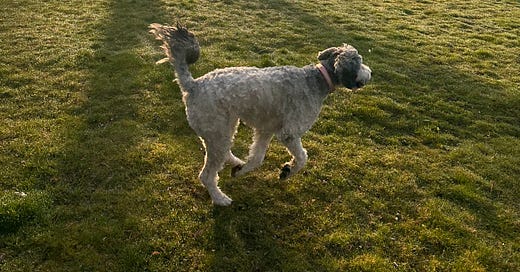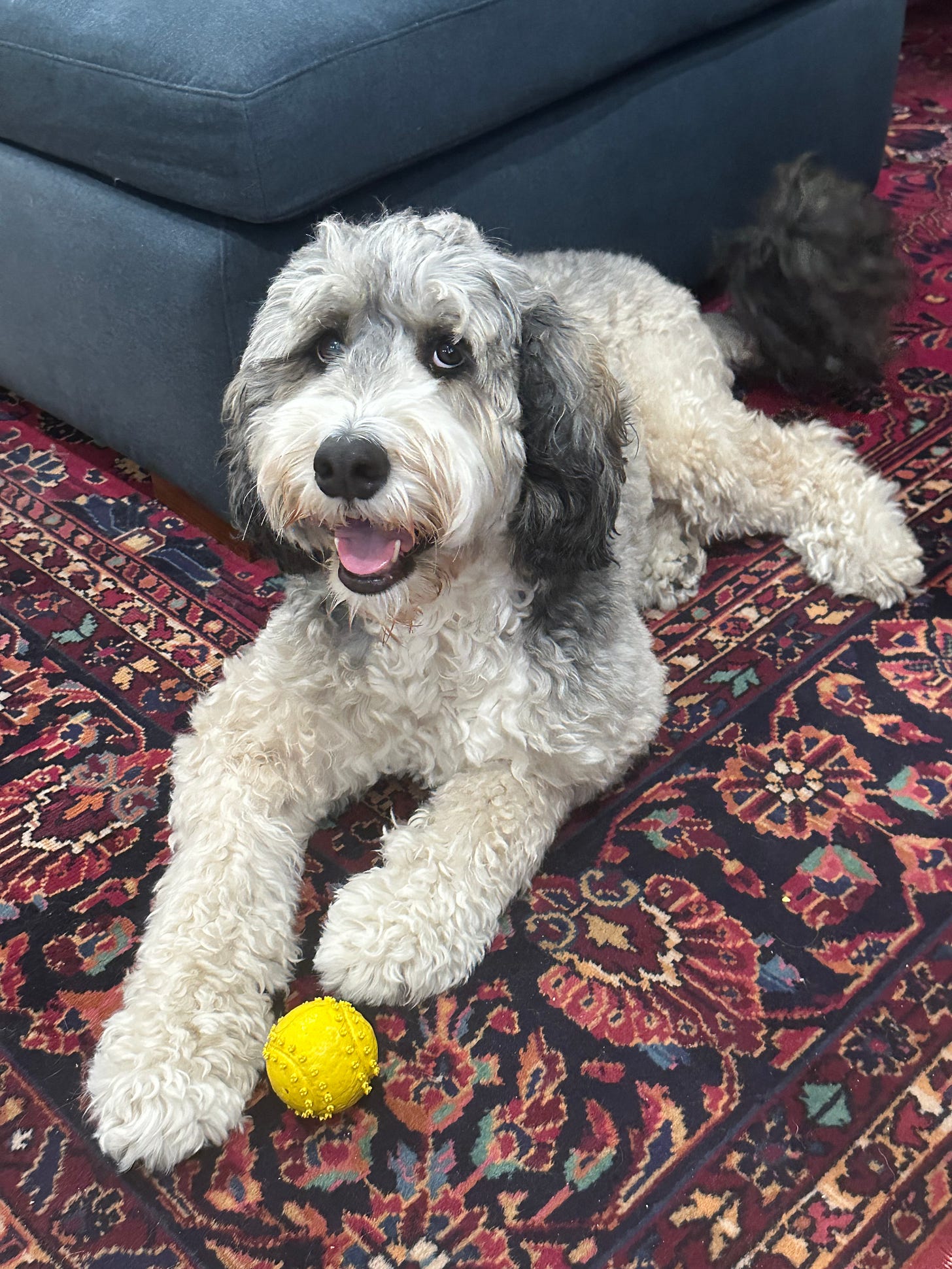If you have a minute - could you take this quick survey about how people consume news in the modern age? LINK . THANK YOU! IT’S A BIG HELP!
In a world that often tries to tell us what we should be, my dog Dolly and I walked our own path. Whether that path includes a partner or not, what matters most is that it’s my path, and that I walk it with confidence and pride.
The love of a dog isn’t a magnetic spark, it’s not about the times you climbed a mountain together or the mere act of unconditional love. It’s an unwavering presence in an ever-changing world. It’s a constant heartbeat with you, on long car rides, in cold beds, when you are sad and when you are happy. A sense of stability in an otherwise unpredictable world.
My dog Dolly passed away this past Monday from lymphoma. I’d been ready for this, but also not ready at all.
Dolly was given one week to live in April after failed chemo efforts. Oncologists didn’t know why she lived so long, but she did. My friend Keith said to me, “she waited until she knew you’d be okay.”
She stayed with me through my cancer journey until I wasn’t wobbling down the stairs (which, truly, ended last week).
Previous substack: Shannen Doherty, on difficult women and dying from cancer
Previous substack: Big Environmental News and Big Personal News
When we got my new puppy Poppy, it was Dolly who taught her how to be a proper dog in the world. She trained up the puppy to be loving, loyal and potty trained.
Dolly’s loss left a void that can’t be filled. When she passed away, the grief I felt was overwhelming. It was the kind of grief that society often doesn’t fully recognize. In many ways, losing Dolly was like losing a part of myself—a piece of my identity that had been shaped by our shared experiences.
When I first shared that I had lost Dolly earlier this week, I was met with an outpouring of support from others who had been through the same thing. It struck me how universal this experience is, yet how rarely we talk about it openly. The grief of losing a pet is real, and it deserves to be acknowledged. For me, writing about Dolly was not just a way to cope with my loss, but also a way to validate the grief that so many pet owners feel but often keep to themselves.
In our society, there’s often an unspoken hierarchy of grief, where losing a pet is somehow seen as less significant than losing a human loved one. I lost my mother and others close to me, I don’t think it’s right to rank grief and pain. Those who have truly loved a pet know that this loss can cut just as deeply as losing a human. Dolly was there for me in ways that many people in my life were not. Whether it was her curling up beside me as I worked late into the night or her excited barks when I came home after a long day, she was a source of constant joy. Even during my darkest moments Dolly was there, her presence a comforting reminder that I wasn’t alone.
As a 39-year-old single woman, I often find myself navigating a world that hasn’t quite made peace with my life choices. Despite all the progress we’ve made as a society, there’s still a lingering stigma around being a single woman in your late thirties. It’s as if, somehow, you’ve missed a crucial step in the so-called “normal” life trajectory.
Dolly wasn’t just a pet; she was my constant companion, my adventure partner. In a world that sometimes seems to measure a woman’s worth by her relationship status, Dolly never judged me. She didn’t care if I was single, married, or somewhere in between. All she cared about was that I was there, that I loved her, and that we were together.
This is newsletter is 100% reader-supported. If you enjoy my writing or want to support my work, please consider upgrading. It’s about the cost of one coffee per month.





